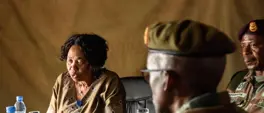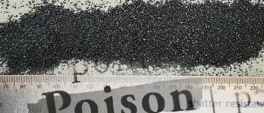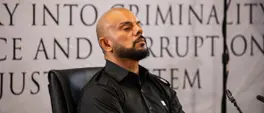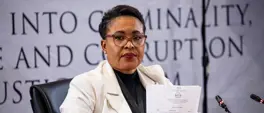SA-Israel genocide case: Ugandan judge draws attention to her views after landmark ICJ ruling
Freelance
27 January 2024 | 8:21Ugandan Judge Julia Sebutinde voted against all the provisional measures ordered by the court to prevent genocidal acts and loss of life in the occupied territory of Gaza.
CAPE TOWN - As the world dissects Friday’s landmark ruling by the International Court of Justice (ICJ), one judge is drawing particular attention for her views on South Africa’s genocide case against Israel.
Ugandan Judge Julia Sebutinde voted against all the provisional measures ordered by the court to prevent genocidal acts and loss of life in the occupied territory of Gaza.
ALSO READ:
- ICJ orders Israel to 'take all measures in its power' to prevent killing of Palestinians
- 'Israel will continue to defend itself against Hamas,' says Netanyahu in wake of ICJ order
- DA, Good, SAJBD weigh in on ICJ order
In her dissent, she said South Africa failed to prove that Israel acted with genocidal intent against Palestinians.
Sebutinde is celebrated in legal circles for being the first African woman to sit on the bench of the world’s top court.
She’s serving her second term on the bench of 15 judges after first being elected in 2012.
Notably on Friday, her disagreement with all the provisions ordered by the court stood as a lone dissenting voice, even in two instances where ad hoc Israeli Judge Aharon Barak agreed with his peers.
In her dissenting opinion appended to the judgment, Sebutinde said the dispute between Israel and Palestinians was historically a political one, calling for a diplomatic and negotiated settlement, and not a legal dispute that could be settled through the court.
She added that South Africa had not demonstrated even on a prima facie basis that Israel has been acting with genocidal intent against Palestinians.
However, the court’s majority view was that South Africa made a sufficient case of the risk posed to the Palestinian people because of Israel’s military actions, and that their rights needed to be protected under the Genocide Convention.
Get the whole picture 💡
Take a look at the topic timeline for all related articles.
















